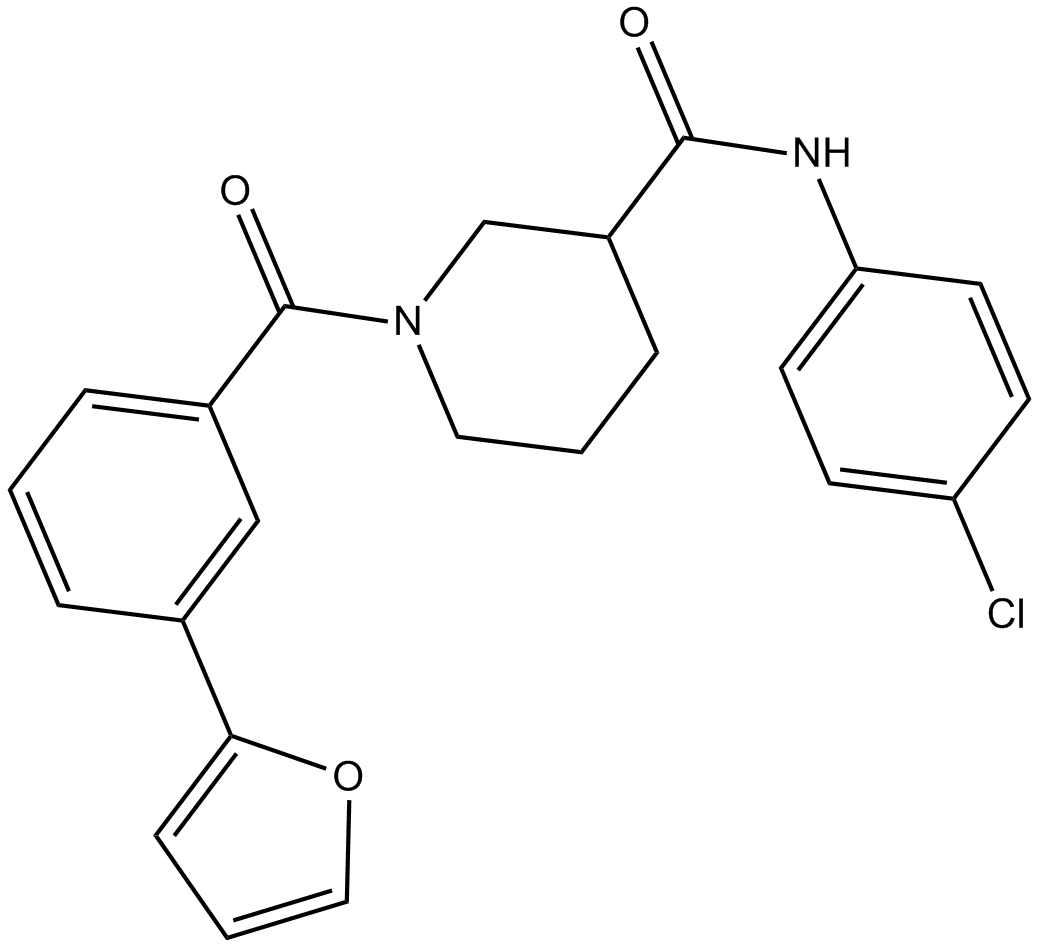CCG 203971 |
| Catalog No.GC14266 |
Antifibrotic agent
Products are for research use only. Not for human use. We do not sell to patients.

Cas No.: 1443437-74-8
Sample solution is provided at 25 µL, 10mM.
CCG-203971 is a second-generation RhoA/myocardin-related transcription factor A (MRTF-A) inhibitor. CCG-203971 potently targets RhoA/C-activated serum response element (SRE)-luciferase (IC50=6.2 μM).
CCG-203971, a second-generation Ras homolog gene family, member A (RhoA)/myocardin-related transcription factor A (MRTF-A)/serum response factor (SRF) pathway inhibitor, represses both matrix-stiffness and transforming growth factor beta–mediated fibrogenesis as determined by protein and gene expression in a dose-dependent manner. CCG-203971 significantly represses TGF-β- induced MKL1 expression at 25 μM concentration[1]. Human dermal fibroblasts are plated onto 96-well plates and allowed to grow for 3 days in the presence of 30 μM CCG-203971 or DMSO vehicle. Viable cell density is assessed through enzymatic reduction of the water-soluble tetrazolium dye WST-1. Scleroderma dermal fibroblasts proliferate faster than normal cells, and this is inhibited by CCG-203971[2].
CCG-203971 is tested in a Bleomycin skin injury model. Bleomycin is administered in 50 μL of DMSO intraperitoneally. Preliminary studies show that Bleomycin administered in this manner is well tolerated at 100 mg/kg twice a day. Intradermal Bleomycin for 2 weeks along with the DMSO control (50 μL i.p.) results in marked dermal thickening (P<0.0001) compared with the PBS+DMSO group, which does not receive Bleomycin. CCG-203971 treatment strongly and significantly (P<0.001) suppresses the Bleomycin-induced skin thickening in this model. Skin collagen amounts, assessed by measurement of hydroxyproline content, show similar results. Bleomycin injections promote collagen deposition (P<0.01) and CCG-203971 is able to block this effect (P<0.05)[2].
Reference:
[1]. Johnson LA, et al. Novel Rho/MRTF/SRF inhibitors block matrix-stiffness and TGF-β-induced fibrogenesis in human colonic myofibroblasts. Inflamm Bowel Dis. 2014 Jan;20(1):154-65.
[2]. Haak AJ, et al. Targeting the myofibroblast genetic switch: inhibitors of myocardin-related transcription factor/serum response factor-regulated gene transcription prevent fibrosis in a murine model of skin injury. J Pharmacol Exp Ther. 2014 Jun;349(3):480-6.
Average Rating: 5 (Based on Reviews and 8 reference(s) in Google Scholar.)
GLPBIO products are for RESEARCH USE ONLY. Please make sure your review or question is research based.
Required fields are marked with *




















